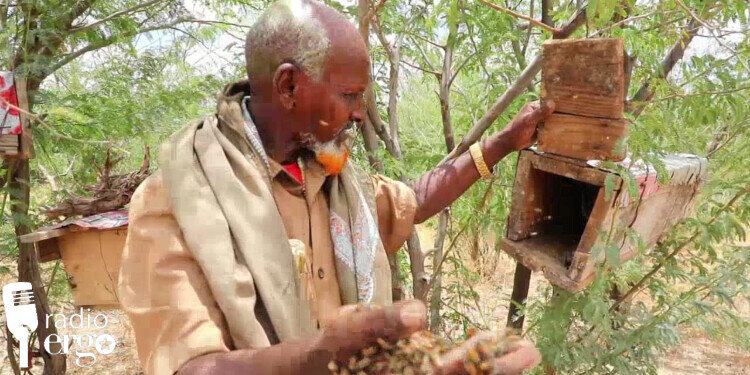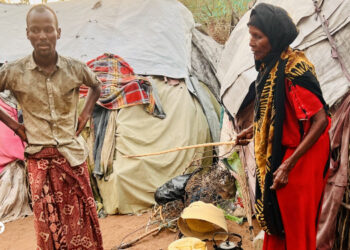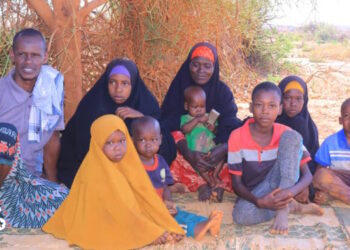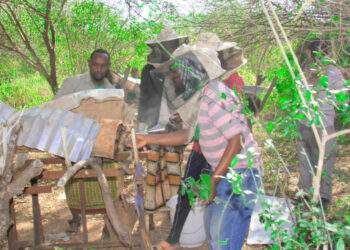(ERGO) – Bilal Ibrahim Hassan’s bees vanished several months ago and since then he’s been struggling to support his family without the income he relied on from selling honey.
The bees moved away in swarms last November, when the last of the plants they relied on for pollen and nectar dried up due to the lack of rainfall in this part of southern Somalia’s Bay region.
Bilal, 45, used to earn $500–$600 every three months from honey sales, covering all the needs of his wife and seven children. Now, he relies on begging to provide one meal a day.
“The bees that provided us daily food are gone. They left because there were no trees, no flowers, no water,” Bilal said.
“In 14 years of beekeeping, we’ve never experienced such hardship. Life was good before, now it’s unbearable.”
He is among hundreds of families who thrived mainly from beekeeping on the outskirts of Baidoa.
“There’s nothing I can do. Sometimes we get food for dinner; sometimes we don’t. There’s no consistency,” he explained.
He hasn’t paid his rent for three months and owes $170 debt at local shops, which he cannot repay. Two of his children were expelled from primary school in December due to unpaid monthly fees of $20.
“My life was better before. My children were in school; we had food, money. Now we have nothing. I can’t compare this to the past, it’s so much worse,” Bilal said.
Abdi Nur Abdi Ahmed, a local businessman who sold honey, now sits idle as no beekeepers like Bilal have brought him any honey for the past three months.
“I’m stuck at home, watching my shop empty. I have nothing for my six children. Only God can help us now. I was their sole provider, but I have nothing to do,” Abdi told Radio Ergo’s local reporter.
He had been earning $10 daily from honey sales. After exhausting his savings, he removed four children from Busley Elementary School in January due to $40 monthly fees that he couldn’t afford.
“My concern is that my savings are gone, and I’m in debt. I can’t find a solution. Our situation is dire,” Abdi said.
Environmental expert Mohamed Abukar explained that bees, like humans, suffer from drought and biodiversity loss.
“When drought hits, bees face water shortages, food scarcity, and extreme heat. To survive, they seek new habitats. Without pollinated flowers, honey production drops, leaving beekeepers impoverished and prices rising,” Mohamed stated.
He urged farmers to dig wells and relocate their bee hives to areas with trees less affected by drought.
“These families, who relied on beekeeping, have no other income sources. Their future is uncertain as environmental degradation worsens,” Mohamed added.











